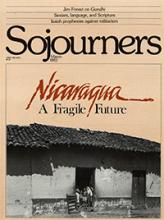The letter of invitation was to "A Dialogue Between First and Third World Theologians." I had sworn off most conferences some years ago, but this one looked promising. For five years Third World theologians from Latin America, Asia, Africa, and black America had been in dialogue on a regular basis, trying to do theology from a new starting point: the struggles of the poor and the oppressed.
Now, for the first time, EAT WOT (Ecumenical Association of Third World Theologians) was sponsoring a conference with theologians from the First World. It was not to be just another academic theological conference, said the letter, but a gathering of those from around the world who were actively engaged in struggles for justice and were reflecting theologically "from the grassroots" on that struggle.
The scene was Geneva. Despite the intention otherwise, the first few days were quite academic. The old style of rational, verbal, abstract theology still predominated. The tension that developed over this issue was not a First World-Third World tension, but rather arose between those teachers of theology in the seminaries and universities of the First and Third Worlds and the pastors, community organizers, and theologians who were closer to the struggles of the poor in both places.
Barriers built up over 500 years of colonial and imperialist history don't come down easily, even in an atmosphere where the participants have so much in common. Our theme was "Doing Theology in a Divided World," and the first divisions we encountered were those between ourselves.
Read the Full Article

